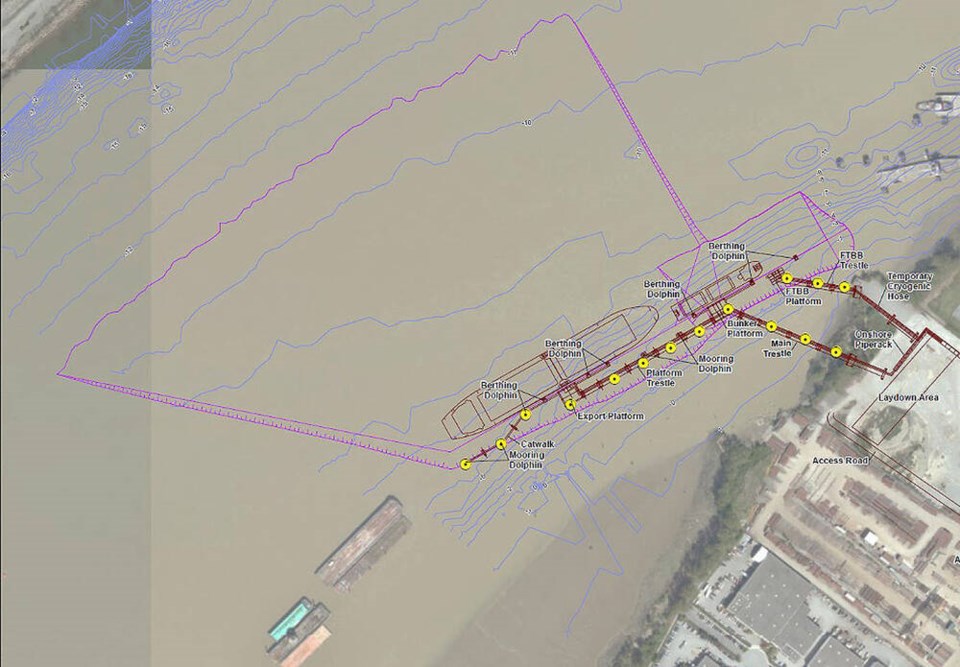A proposed new liquefied natural gas (LNG) marine jetty in Delta has moved another step closer to reality with the federal government announcing its approval on Wednesday afternoon.
The Impact Assessment Agency of Canada announced that, following a thorough environmental assessment based on science and Indigenous knowledge, the Tilbury Marine Jetty Project has been issued its final environmental assessment decision allowing the project to proceed.
The Tilbury Jetty Limited Partnership can now proceed with obtaining any other necessary permits and authorizations from federal departments, the government announced.
Those final approvals include authorizations and approvals from Fisheries and Oceans Canada under the Fisheries Act, Transport Canada under the Canadian Navigable Waters Act and Environment and Climate Change Canada under the Disposal at Sea Regulations.
The project includes the berthing and transferring of LNG to marine barges and carriers for delivery to local fuel and offshore export markets.
The supply of LNG for the facility will come via a pipeline from the existing adjacent FortisBC Tilbury LNG Plant on Tilbury Island.
This March, the B.C. government announced that an environmental assessment certificate had been issued for the Tilbury Marine Jetty Project.
George Heyman, Minister of Environment and Climate Change Strategy, and Rob Fleming, Minister of Transportation and Infrastructure, made the decision after “carefully considering the environmental assessment of the proposal conducted by B.C.’s Environmental Assessment Office (EAO),” according to the province at the time.
Although the BC EAO concluded that the residual effects from the project alone would not be significant, there would be cumulative impacts on Indigenous groups.
The ministers issued a certificate with 22 legally enforceable provincial conditions that must be followed over the life of the project including, among other things, plans to reduce greenhouse gas emissions and opportunities for First Nations’ monitoring of construction and operations.
The jetty project is not dependent on the adjacent proposed FortisBC Tilbury expansion, the province noted.
The project is to be jointly owned by Fortis LNG Jetty Limited Partnership and Seaspan.



